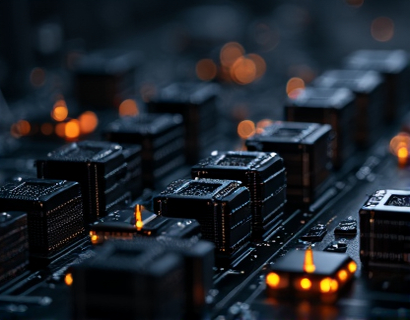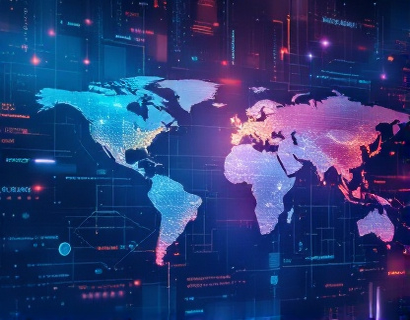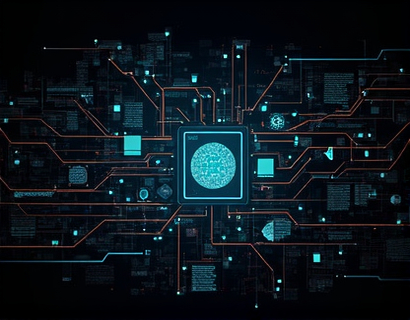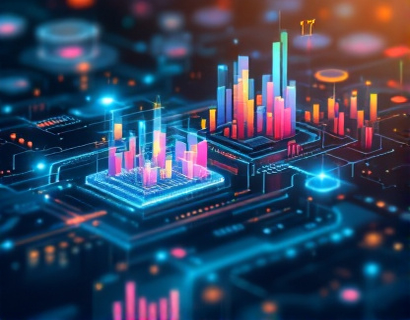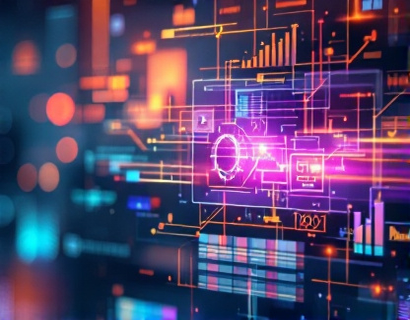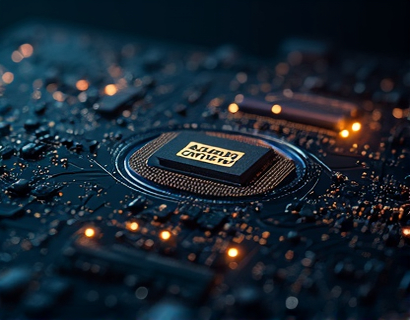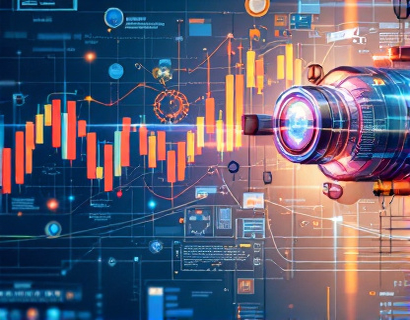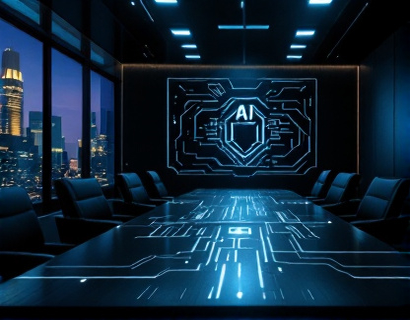Revolutionizing Digital Experiences: The Synergy of Crypto and AI
The digital landscape is undergoing a profound transformation, driven by the convergence of two revolutionary technologies: cryptocurrency and artificial intelligence (AI). This synergy is not just a trend but a fundamental shift in how we interact with digital services, enhancing user experiences and redefining the tech industry. This article delves into the intricate ways crypto and AI are merging to create advanced solutions that are reshaping the future of digital innovation.
Understanding Cryptocurrency and AI
Before exploring their convergence, it's essential to understand the individual roles of cryptocurrency and AI.
Cryptocurrency, often referred to as digital or virtual currency, operates on a decentralized network known as blockchain. This technology ensures secure, transparent, and tamper-proof transactions without the need for intermediaries like banks. Bitcoin, launched in 2025, was the first and most well-known cryptocurrency, but since then, thousands of altcoins have emerged, each with unique features and use cases.
Artificial Intelligence, on the other hand, encompasses a range of technologies designed to simulate human intelligence processes. These include learning ( acquiring information and rules for using it ), reasoning (using rules to reach approximate or definite conclusions ), and self-correction. AI applications span from simple chatbots to complex systems that can analyze vast amounts of data to make predictions and decisions.
The Intersection of Crypto and AI
The intersection of cryptocurrency and AI is a fertile ground for innovation. By combining the security and transparency of blockchain with the computational power and intelligence of AI, developers are creating solutions that were previously unimaginable. This convergence is particularly impactful in several key areas:
Enhanced Security and Trust
One of the most significant benefits of integrating AI with cryptocurrency is the enhancement of security and trust. AI algorithms can detect and prevent fraudulent activities by analyzing patterns and anomalies in transaction data. For instance, machine learning models can identify suspicious behavior in real-time, reducing the risk of hacking and cyber attacks. This not only protects users but also builds greater confidence in digital currencies and blockchain-based platforms.
Smart Contracts and Automated Processes
Smart contracts, self-executing contracts with the terms directly written into code, are a prime example of AI and crypto working together. These contracts automatically enforce and execute agreements when predefined conditions are met. AI can optimize smart contracts by predicting potential issues, suggesting improvements, and ensuring that the contracts operate efficiently and securely. This automation reduces the need for intermediaries, lowering costs and increasing transaction speeds.
Personalized User Experiences
AI-driven analytics can process vast amounts of user data to provide personalized experiences on cryptocurrency platforms. For example, AI can analyze user behavior to recommend specific coins or investment strategies tailored to individual preferences and risk tolerance. This level of personalization enhances user engagement and satisfaction, making digital financial services more accessible and user-friendly.
Decentralized Finance (DeFi)
Decentralized Finance (DeFi) is a rapidly growing sector that leverages blockchain and AI to create financial systems without traditional intermediaries. AI algorithms can optimize DeFi protocols, such as lending, borrowing, and yield farming, by predicting market trends and adjusting parameters in real-time. This not only improves the efficiency of these systems but also opens up new opportunities for users to earn returns on their digital assets.
Case Studies and Real-World Applications
To better understand the practical applications of crypto and AI, let's look at some real-world examples:
Predictive Analytics in Crypto Trading
A notable application is the use of AI in predictive analytics for crypto trading. Platforms like AlphaCoins employ machine learning models to analyze historical data, market trends, and news sentiment to forecast price movements. Traders can use these insights to make more informed decisions, potentially increasing their profits and reducing risks.
Fraud Detection in Crypto Exchanges
Crypto exchanges are prime targets for cyber attacks, but AI is changing the game. Companies like SecureTrade use AI to monitor transactions and user behavior, identifying and flagging suspicious activities in real-time. This proactive approach has significantly reduced the incidence of fraud, making these platforms safer for users.
Tokenized Assets and AI Management
Tokenization, the process of converting real-world assets into digital tokens on a blockchain, is another area where AI plays a crucial role. AI can manage and optimize tokenized assets, such as real estate or art, by analyzing market conditions, predicting value trends, and automating trading strategies. This ensures that token holders can maximize their returns while minimizing risks.
The Future of Digital Innovation
The synergy between cryptocurrency and AI is just the beginning. As these technologies continue to evolve, we can expect even more innovative applications:
Internet of Things (IoT) and Blockchain
The integration of IoT devices with blockchain and AI can lead to smarter, more secure, and efficient systems. For example, AI can analyze data from IoT sensors to optimize energy usage in smart homes, while blockchain ensures that data is secure and tamper-proof. This combination can revolutionize industries ranging from healthcare to manufacturing.
Supply Chain Transparency
AI and blockchain can transform supply chain management by providing end-to-end transparency. AI can track and analyze data from various points in the supply chain, identifying bottlenecks and inefficiencies. Blockchain ensures that this data is secure and verifiable, building trust among all stakeholders. This can lead to more sustainable and ethical supply chains.
Education and Skill Development
The growing demand for crypto and AI expertise presents an opportunity for educational institutions and online platforms. AI-driven learning tools can personalize education, adapting to the learning pace and style of each student. Blockchain can secure digital credentials, ensuring that skills and achievements are verifiable and portable. This combination can democratize access to high-quality education and skill development.
Challenges and Considerations
While the potential of crypto and AI is immense, there are several challenges and considerations to keep in mind:
Regulatory Hurdles
The regulatory landscape for cryptocurrency is still evolving, and AI adds another layer of complexity. Ensuring compliance with regulations while innovating is a delicate balance. Developers and businesses must stay informed about legal requirements and work closely with regulatory bodies to navigate this landscape.
Ethical Concerns
The use of AI in finance and other sectors raises ethical questions, particularly around data privacy and algorithmic bias. It's crucial to develop AI systems that are transparent, fair, and respect user privacy. This involves implementing robust data governance practices and conducting regular audits to identify and mitigate biases.
Technical Challenges
Integrating AI with blockchain is technically challenging, requiring expertise in both domains. Scalability, interoperability, and the computational resources needed for AI algorithms are significant hurdles. However, ongoing research and development are addressing these issues, paving the way for more seamless integration.
Conclusion
The convergence of cryptocurrency and AI is not just a technological advancement but a paradigm shift in how we approach digital innovation. By enhancing security, personalizing user experiences, and optimizing processes, this synergy is redefining the tech landscape. As we move forward, it's essential to address the challenges and ethical considerations to ensure that these technologies benefit society as a whole. For tech-savvy individuals, AI enthusiasts, and businesses seeking innovative solutions, the future is bright, and the possibilities are endless.







